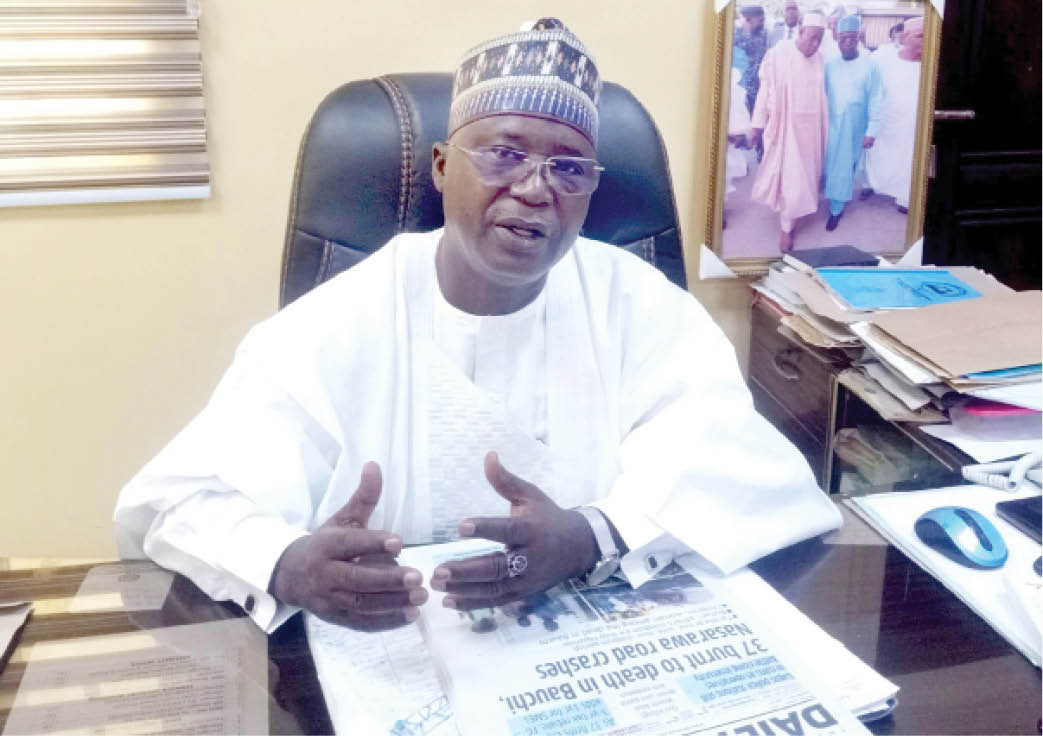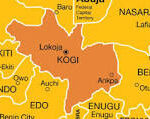Dr. Jibrilla Mohammed is the Managing Director/Chief Executive Officer of Kano State Investment and Property (KSIP) Ltd, a development finance company worth about N2 billion. In this exclusive interview, the MD/CEO speaks on KSIP’s role in improving the Internally Generated Revenue (IGR) of the state, and what it is doing about moribund companies in the state, among others.
What is the mandate of the company?
The government that set up KSIP in 1971 mandated the company to do three things. Firstly, to assist the government in propagating the economic viability of the state to investors. Secondly, to generate revenue for the government from investments made by the company. Thirdly, to act as the custodian of the properties of the state government.
How much has KSIP generated for the state?
In terms of liquid cash, for example last year, we gave the government N150 million from our resources. It is not an issue of how much is given every year because if you look at the buildings we have constructed, these are monies that should have gone to the coffers of the state government but were invested in properties.
Some states are acquiring properties but Kano recently sold off some assets, why is this so?
There are some properties we sold in Kaduna which have been there for years that were inherited by the Kano State government from the Northern Nigeria government. The governor in his first budget speech promised to build 5,000 units of affordable houses for those at the low-income level owing to the fact the three cities built by Kwankwaso were elite houses and even as of now, majority of them have not been sold.
The governor mandated KSIP to build the 5,000 houses but that the money should come from the property we have in Kaduna, which is not being used and is not generating any revenue for Kano. So far, we have built 365 houses in Gurjiya and all of them have been sold at N2.85m per unit. So, it is the money that we derived from the sales of the property in Kaduna that we used in building these houses in Kano.
There is a rising population in Kano State with a significant unemployment rate, how has KSIP contributed to creating jobs?
While the reduction of unemployment is not directly part of our mandate, we have generated employment through our property development activities in the state. Aside from that, we sensitise investors, particularly those investing in the capital market, to show them the need for investing their money in productive ventures which will in turn generate employment.
We have given financial support to non-governmental organisations and start-up companies just to make sure they generate employment.
We have also taken a census of all the dead (moribund) companies in Kano and we are talking with their owners to see how they can revive them. We are doing this with other agencies.
How is the investment firm helping to revive the moribund companies?
Sensitising the owners is the primary responsibility we have taken on ourselves. Our problem in Nigeria, particularly in Kano, is that our businessmen, the big names, are only ‘a one-man business’. They don’t go into partnership. Everybody wants his family name only and once that person dies, the company dies. This is why we are sensitising them on the need for partnerships which reduce their risks.
Is there any plan to buy stakes in some of these companies?
No. What we are doing is to relate an investor with a profitable company that we feel if we revive, money will be made from it.
Kano is a commercial centre, does KSIP invest only in the state or more outside the state?
One of the ideas of setting up the company is for investment purposes and investment can be anywhere in Nigeria.
You recently said KSIP trades on the floor of the Nigerian Stock Exchange from the company’s office, how does this work?
When I came in, I realised that the company was only resting on annual dividends, not much activities in the stock exchange. So, we felt there is a need for us to participate actively in the stock exchange to generate more revenue for the state. So, I employed two qualified stockbrokers and we already have a relationship with a stock broking company. We are now using their platforms to trade every day. Once the stock market opens, right from the confines of our office, we see the performance in the stock market.
Between property and blue chip stakes, which has brought more returns?
Last year, we made about N60 million from our investment in blue chip companies but investment in property is much higher because it is a revolving thing. But I believe with time, we will make more money from the stock exchange because we trade every day. You make more money actually from property but the gestation period is quite longer than in the stock market.
What role can companies like yours play to help states augment their Internally Generated Revenue (IGR)?
By improving the services we render, like trading in the stock market, building and selling properties. But most importantly is that we should be companies that promote the economic activities in the state; the viability, the potentials in the state to not only Nigerian investors but outside investors.
Secondly, in 2018, we had a meeting/conference of all investment companies of all Northern states here in Kano and what we did there was exchange ideas on how we can help our state governments and also the business relationships between our states. For instance, we’ve spoken a lot with Gombe State because there was a time we thought of establishing an oil mill from cotton seeds – there is a lot of cotton in Gombe.
Why do you think the majority of state governments record IGR?
One, there is the attitudinal problem of wanting to depend on the federal government. Two, there is a structural problem in the states. The structures are so limited or local that they cannot use them to generate revenue. Thirdly, there is poverty in most of the states where there is no employment and it becomes difficult to generate revenue. But most importantly is the failure of leadership. For example in Kano State, we have about two million tricycle riders roaming the streets every day, if there is a way you can ask them to pay N100 each per day, that is about N20 million per day. I know Kano is doing it now but many states do not even know this as a means of generating revenue. There are sources of revenue that some states don’t even consider. Parking lots are another source of revenue but most of the states are satisfied with whatever they get from the federal government. But it is not enough.
What roles can investment companies play for Nigeria to quickly exit recession?
Primarily, what is important is we have to know where we are and where we want to be. Foremost is infrastructure and political will, without which there cannot be development.
What are the prospects for the company?
What we look forward to is to make sure that we increase our scope, diversify our activities and limit our expenditure. For instance, I have just created a desk for commodity trading. We will go into commodity trading to diversify our operation and reduce our expenditure but make more money.

 Join Daily Trust WhatsApp Community For Quick Access To News and Happenings Around You.
Join Daily Trust WhatsApp Community For Quick Access To News and Happenings Around You.


